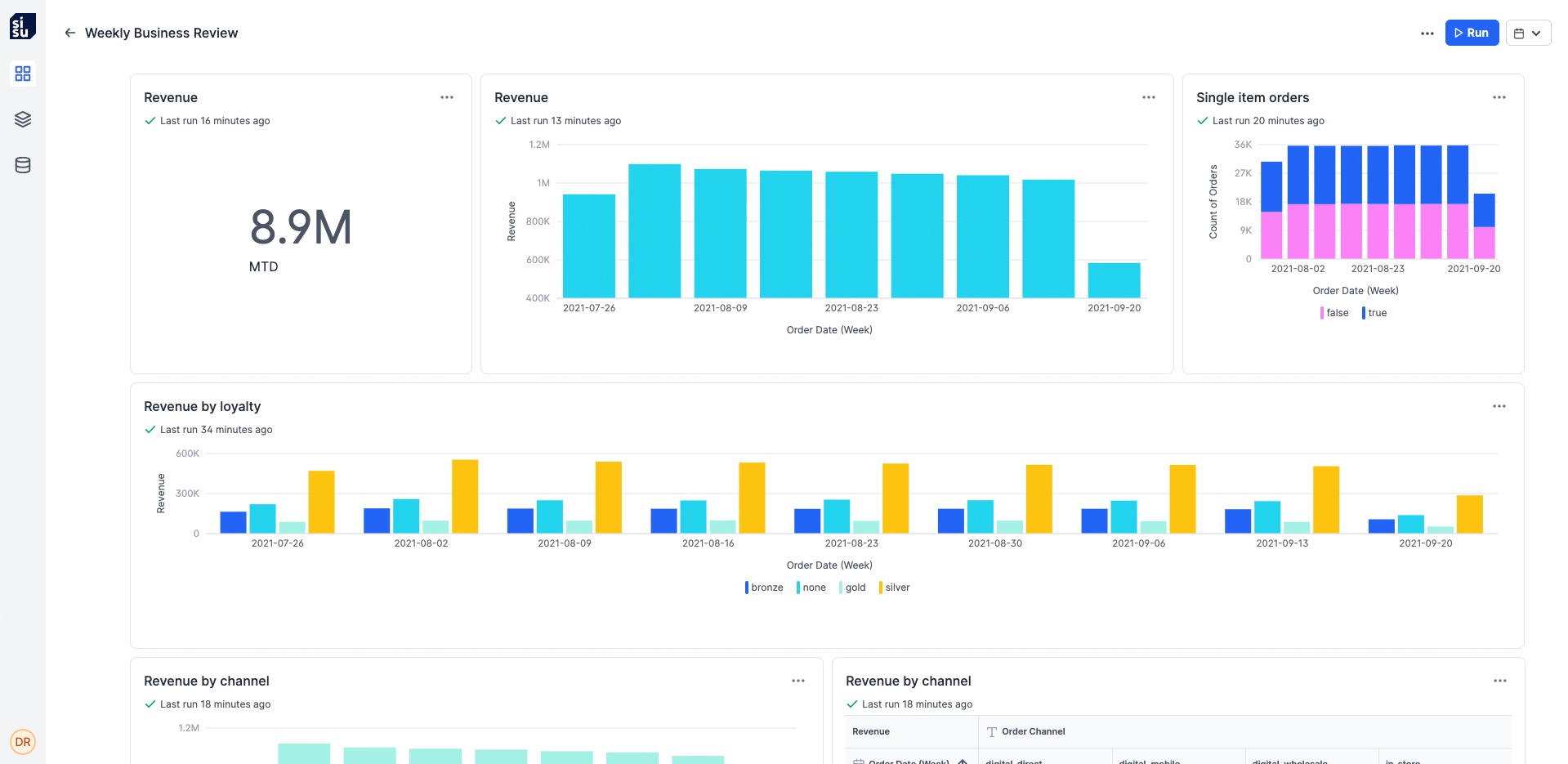Sisu Data, which aims to help businesses make better decisions, announced today it has raised $62 million in a Series C round of funding led by Green Bay Ventures.
Existing backers Andreessen Horowitz (a16z) and NEA also put money in the round, along with new investor Geodesic Capital. The financing brings San Francisco-based Sisu’s total raised since its 2018 inception to over $128 million. NEA led the company’s $52.5 million Series B in October of 2019.
Peter Bailis, a former Stanford University professor, founded Sisu Data out of his lab, spending years on research at the school before leaving to focus on the endeavor full time. The company’s mission is simple, even if the technology powering it is not: to operationalize the world’s data so that businesses can “make the best possible decisions.”
“Today, businesses have massive amounts of complex data, but not enough time, people or the right tools to analyze it,” Bailis said. “That’s the massive problem Sisu is working to solve.”
“A typical organization has way more data collected than people actually use, because it’s cheaper and easier to get this kind of data and consolidate, especially in the cloud,” Bailis told TechCrunch.
Business metrics are constantly changing. By the time a company realizes those metrics have changed, and then attempts to understand why, a company could lose a lot — including productivity, time and money.
Sisu’s real-time “Decision Intelligence Engine” aims to give analysts and business leaders a way to analyze their cloud data to not only understand what’s happening in their business, but why it’s happening — and most importantly, to Bailis, what actions to take in response. The end result, notes Green Bay Ventures co-managing director Anthony Schiller, is that companies are equipped with insights they need “to make the best decisions in improving the operations, profitability and success of their business.”
“If you’re a modern organization, you have information about where your users are coming from, what they’re doing, how they’re benefiting from your product or service, why they’re renewing and it’s kind of unbelievable,” Bailis said.
While the executive declined to reveal at what valuation this latest round was raised or any hard revenue figures, he did say that Sisu “more than tripled” its revenue and saw “steady customer traction” over the past year. Customers hail from a variety of industries and include Mastercard, Samsung, Wayfair, Autodesk, Upwork and Gusto. Bailis described the Series C as a “preemptive inside round.” He also noted that Sisu has doubled its headcount to 65 over the past year.
Also today, Sisu revealed two new products set to be released this month that it says will help it achieve its goal of “closing the decision gap”: Explorations and Dashboards.
Explorations aims to allow Sisu users to “quickly and easily” dig into, pivot and visualize metrics, without requiring code. Dashboards will permit users to view explorations, track metric changes and share key data drivers with colleagues and executives. Customers will be able to visualize their data in any way they’d like. For example, they could look at revenue by day or week and view that data with any type of graph, and then collaborate with others in the company.
Sisu plans to integrate the new tools with its existing analysis capabilities so that its users can move between analyzing what has happened in their business to why it has happened, and what to do about it — “all on a single platform and without writing any code,” the company says.
“A lot of the conventional approaches on reporting and dashboards are really slow, and they’re incomplete and not ultimately actionable, or a lot of people who can’t actually make decisions, they’re saying — ‘here’s what’s going on,’ ” Bailis said. “And so with Sisu, users can look at a result, such as revenue is down, and can go get a detailed comprehensive answer as to why, literally in seconds without ever leaving the product, and then can go and take that result, and share it out with their team, who can go in, create their own analyses and iterate.”
With Sisu, he said, the machine learning and cloud native engine “does all the hard work.”
“The benefit here is really simplicity,” Bailis said. “How you get simple answers quickly.”

Ben Horowitz, co-founder and general partner at a16z, said his firm was first drawn to Sisu because of Bailis’ reputation.
“I was impressed with what I’d heard about Peter’s [Bailis’] work at Berkeley and Stanford — especially from his PhD co-advisors Ali Ghodsi and Ion Stoica, who co-founded Databricks,” Horowitz told TechCrunch. In fact, Ghodsi had told Horowitz how Berkeley’s computer science department was so impressed with Peter’s dissertation work that they broke their own rule against hiring their own students for the first time in 20 years to try to get Peter to stay as faculty.
The systems Bailis and his team built on campus are now the Sisu engine, and were already in use at big tech companies like Google and Microsoft at the time a16z first invested.
“That was amazing because these big tech players almost always build in house, but here they were using software developed by a twenty-something-year-old Stanford professor,” Horowitz said. “It solved a real pain point: even the best funded companies in tech don’t have enough analysts to make decisions from the data they have.”
Horowitz views what Sisu is doing in a similar trajectory as the creation of the spreadsheet.
“In the days before spreadsheets, businesses had rows and rows of people at desks and each person would calculate one cell in a financial model, which was tedious. Then the spreadsheet was created and everything changed — anyone was capable of financial planning,” he wrote via email. “ We are in a similar spot with decision making. People can think in two, maybe three dimensions, but their data is now in hundreds of dimensions, with billions of data points. As a result, humans don’t make good decisions when it comes to data, and Sisu’s engine has the power to dramatically simplify these decisions and transform history.”































Comment